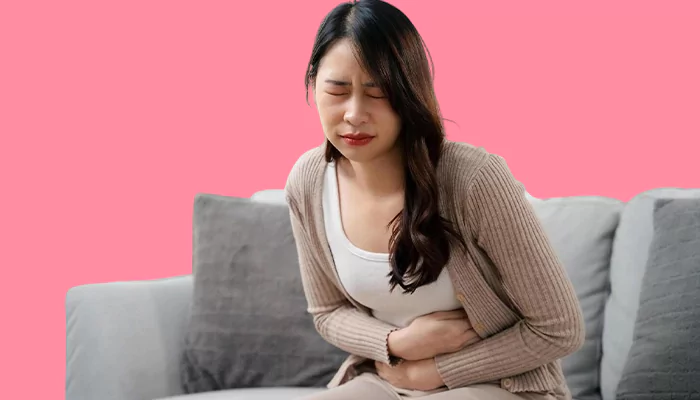Irritable bowel syndrome (IBS) is one of the most common digestive disorders among women, affecting quality of life and causing uncomfortable symptoms such as bloating, abdominal pain, and irregular bowel movements.
Studies indicate that women are more susceptible to it than men, due to the influence of hormones and psychological factors.
What is IBS?
IBS is a functional disorder of bowel movements that leads to chronic symptoms without any obvious organic dysfunction.
Causes of IBS in Women
The causes vary from one woman to another, and physical, psychological, and hormonal factors often overlap. The most prominent of these causes are:
- Stress and psychological pressure.
- Hormonal imbalances.
- Intestinal hypersensitivity.
- Unhealthy diet.
- Lack of physical activity.
- Genetic factors.
- Taking certain medications.
IBS Symptoms

The severity of symptoms varies from one case to another, but they often include:
- Abdominal pain or cramps.
- Bloating and uncomfortable gas.
- Changes in bowel movements, such as constipation, diarrhea, or alternating between the two.
- Feeling of incomplete bowel movements.
- Sometimes nausea, especially after eating.
- Aggravation of symptoms before or during menstruation.
Factors that exacerbate irritable bowel syndrome in women
There are several factors that may exacerbate symptoms and make attacks more frequent, the most important of which are:
- Eating spicy or fried foods.
- Stress or persistent psychological pressure.
- Lack of or disturbed sleep.
- Excessive consumption of caffeine and carbonated drinks.
- Monthly hormonal changes.
- Diagnosis of Irritable Bowel Syndrome
- The doctor diagnoses the condition based on the symptoms, after ruling out any other organic diseases.
- The doctor may order some tests, such as stool or blood tests, or a colonoscopy to ensure there are no inflammation or ulcers.
Methods of Treating Irritable Bowel Syndrome in Women
Treatment focuses on alleviating symptoms and improving quality of life, and includes the following:
- Diet modification.
- Medication.
- Psychological and behavioral therapy.
- Regular exercise.
- Drinking water regularly and getting enough sleep.
Tips for Preventing and Living with Irritable Bowel Syndrome

Women can alleviate the symptoms of irritable bowel syndrome (IBS) and better cope with it by following some simple guidelines. The most important of these tips are:
- Avoid foods that cause bloating, such as legumes and carbonated drinks.
- Increase fiber intake gradually to improve digestion.
- Regulate eating and sleeping schedules.
- Avoid anxiety and stress as much as possible.
- Consult a doctor before taking any new medication.
Is irritable bowel syndrome (IBS) a chronic disease?
Yes, it is a chronic disorder, but it can be controlled through diet and appropriate treatment.
Does irritable bowel syndrome (IBS) affect pregnancy?
It usually does not affect fertility or pregnancy, but it may exacerbate symptoms due to hormonal changes.
Is irritable bowel syndrome (IBS) curable?
It is not completely curable, but symptoms can be significantly controlled and a normal life can be achieved with appropriate treatment.
Article Summary
Irritable bowel syndrome (IBS) is a chronic disorder affected by psychological, hormonal, and nutritional factors, and is particularly common among women.
Lifestyle modification, avoiding irritants, and medication under the supervision of a physician can help reduce symptoms and significantly improve quality of life.